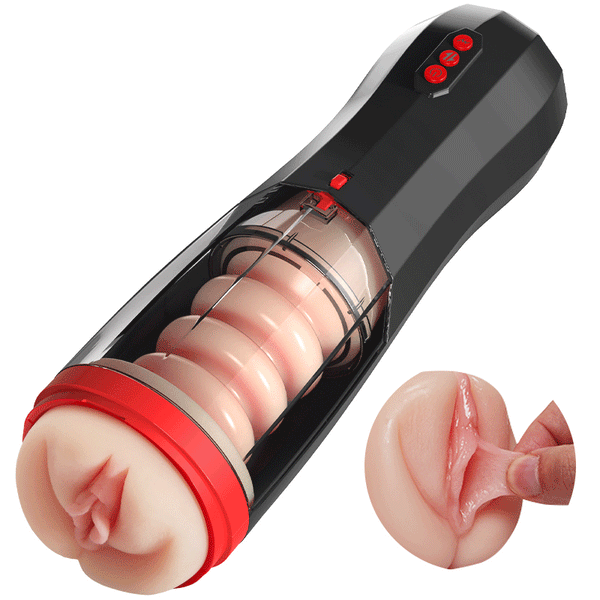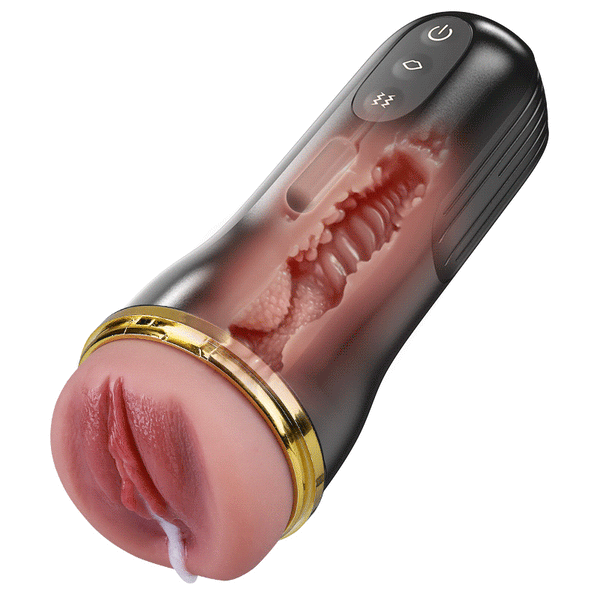Masturbation refers to the act of stimulating one's own sexual organs for pleasure, often leading to orgasm. This behavior is a common part of human sexuality and is found across all genders and ages. People have engaged in self-pleasure throughout history, with evidence dating back to ancient civilizations. Despite its long presence, masturbation has been surrounded by many myths and misunderstandings.
Cultural attitudes toward masturbation have varied widely—some societies embraced it as a natural part of life, while others treated it as taboo or shameful. These mixed views have contributed to confusion about the practice and its effects. In reality, masturbation is a typical sexual activity that most people experience at some point in their lives. It plays a role in sexual development, stress relief, and personal well-being.
The Physiology of Masturbation
Sexual arousal often begins with either physical touch or mental stimulation—sometimes both. As the brain responds, it sends signals that increase blood flow to the genitals, heightening sensitivity and building sexual tension. Continued stimulation eventually leads to orgasm, a release that brings physical relief and emotional calm.
During this process, the brain releases a mix of neurochemicals that influence mood, stress, and overall well-being. Dopamine plays a key role in creating a sense of reward and pleasure. Endorphins help reduce discomfort and promote a relaxed state after climax. Oxytocin, often linked to bonding, can enhance feelings of comfort and emotional ease—even in solo experiences. Together, these natural chemicals explain why masturbation isn’t just a physical act, but also a contributor to emotional regulation and mental clarity.
Health Benefits of Masturbation
Masturbation can support both physical and emotional health in ways that are often overlooked. On a physical level, it helps ease stress by lowering cortisol levels and encouraging the release of relaxing hormones. Many people also find it easier to fall asleep after climax, thanks to the calming effects of endorphins. Some studies suggest regular ejaculation may help lower the risk of prostate issues by clearing out potential toxins from the reproductive system. It can even help reduce certain types of discomfort, like menstrual cramps or muscle tension, by triggering the body’s natural pain relief response.
Mentally, solo sexual activity has been shown to lift mood and reduce symptoms of anxiety or mild depression. The release of dopamine and oxytocin can leave you feeling more at ease and emotionally balanced. Over time, this can also contribute to improved self-image and confidence, especially when masturbation is viewed as a healthy, shame-free part of self-care.
In terms of sexual wellness, taking time to explore your body can deepen your understanding of what brings pleasure. That kind of awareness often translates into more satisfying experiences with a partner. And since masturbation is a private activity, it eliminates the risk of sexually transmitted infections, making it one of the safest ways to enjoy sexual release.
Potential Side Effects of Masturbation
Masturbation is typically harmless, but like anything done in excess, it can cause problems when it starts to interfere with daily life or physical health. Signs of overdoing it might include lingering fatigue, soreness, or even changes in sexual response. Some people notice a dip in motivation or struggle to focus on work or relationships when self-pleasure becomes a coping mechanism instead of a choice.
One issue that comes up, especially with frequent and aggressive habits, is what’s been casually referred to as the “death grip.” This happens when someone gets used to a very specific, intense kind of stimulation—often with too much pressure or friction. Over time, this can make it harder to feel pleasure during other types of touch, including partnered sex.
Physical risks are rare, but they do exist. Using too much force or masturbating in awkward positions can lead to minor injuries like chafing, nerve irritation, or even strain in the lower back or wrists. In some cases, people have reported temporary numbness or sensitivity loss if they don't give their body enough time to recover between sessions.
Excessive masturbation might also have an impact on social engagement. If someone is choosing it over meaningful interaction, hobbies, or rest, that’s usually a signal that something deeper needs attention. When it becomes more of an escape than a healthy outlet, it might be worth exploring why—and whether it’s time to rebalance priorities.
Psychological and Cultural Perspectives on Masturbation
Masturbation often carries emotional weight far beyond the physical act itself. Feelings like guilt, shame, or embarrassment are surprisingly common—especially in places where cultural or religious beliefs frame it as something inappropriate or even immoral. These reactions usually don’t come from the body, but from messages picked up early in life: what’s considered “normal,” what’s “dirty,” or what should stay hidden.
Different cultures and religions approach self-pleasure in distinct ways. Some view it as a moral failing or spiritual weakness, while others barely acknowledge it at all. In certain households or communities, just talking about it openly might be off-limits. Over time, these influences can leave people feeling conflicted—even if they logically understand that masturbation is a normal part of human sexuality.
The emotional tension this creates can be tough to navigate. But it’s important to remember that feeling guilty doesn’t mean you’re doing something wrong. It often just means you’ve internalized messages that no longer serve you. Unlearning those ideas starts with being curious, not judgmental. Reading evidence-based sources, talking with trusted friends, or simply reflecting on your own values can go a long way toward reshaping your perspective.
If the shame or anxiety runs deep, speaking with a licensed therapist—especially one who understands sexual health—can make a real difference. These professionals offer a safe, nonjudgmental space to talk through thoughts that may feel too heavy to carry alone. There’s no “right” amount of masturbation or one-size-fits-all answer, but there is room to build a relationship with your body and mind that feels healthy, balanced, and free of unnecessary guilt.
Masturbation in Specific Life Stages and Relationships
Masturbation isn’t limited by age or circumstance. While often talked about in the context of adolescence or young adulthood, it plays a role in many different phases of life—including pregnancy, aging, and long-term relationships.
During pregnancy, masturbation is generally safe for most people. It can even be helpful—easing tension, improving sleep, and offering a natural way to manage stress or discomfort. As always, it's wise to check with a healthcare provider, especially in high-risk pregnancies, but for many, self-pleasure remains a safe form of sexual expression.
For older adults, masturbation can be an important part of maintaining intimacy, physical connection, and self-confidence. It helps keep blood flowing to the genital area, supports pelvic floor health, and may reduce the risk of sexual dysfunction. More than that, it reinforces the idea that pleasure doesn’t have an expiration date. As bodies change with age, so do needs and preferences—and masturbation can be a gentle, low-pressure way to explore those changes.
In relationships, solo pleasure doesn’t mean a lack of connection—it can actually enhance it. Some partners choose to share the experience as a way of building intimacy, while others simply use the insights they gain to communicate more openly about what feels good. Rather than seeing masturbation as something separate from the relationship, it can be a tool for greater understanding, sexual confidence, and emotional closeness.
Myths and Scientific Facts About Masturbation
Many myths have surrounded masturbation for years, causing confusion and unnecessary worry. Common misconceptions include ideas that masturbation leads to infertility, vision problems, or physical changes to the genitals. These claims don’t hold up under scientific scrutiny.
Masturbation doesn’t cause infertility or any permanent damage to sexual organs. Vision remains unaffected, and no reliable evidence connects masturbation with shrinking or deforming genitalia. These misunderstandings often stem from cultural taboos or misinformation rather than medical facts.
Regarding sexual function, masturbation is generally neutral or beneficial. It can actually improve understanding of one’s own body, help delay premature ejaculation, and increase sexual satisfaction. Problems only arise when it’s done compulsively or causes distress, but in moderation, it supports a healthy sex life.
Psychological research shows masturbation can reduce stress and anxiety, boost mood, and contribute to overall mental well-being. It’s a normal part of sexual development and self-care, not a sign of psychological trouble. When negative feelings do arise, they often come from social stigma rather than the act itself.
Separating myth from fact helps people approach masturbation without guilt or fear, embracing a more informed and balanced view of their sexual health.
How to Practice Masturbation Responsibly
Everyone’s masturbation frequency differs based on personal health and lifestyle. There’s no universal “right amount,” but it’s important to notice if it starts affecting daily activities or relationships.
Keeping it balanced means avoiding compulsive or excessive behavior. When urges feel uncontrollable or interfere with social life, it might be time to take a step back.
Mixing up techniques can help maintain sensitivity. Changing hand movements, pace, or position prevents numbness and keeps the experience enjoyable. Giving the body breaks also supports recovery.
Exploring alternative ways to handle sexual energy or stress, like physical exercise, mindfulness practices, or creative outlets, can create a healthier overall routine.
AcmeJoy's Top 5 Best-Selling Male Masturbation Toys





Conclusion
Masturbation is a natural and healthy part of human sexuality. Understanding it without judgment helps people embrace their bodies and sexual health more confidently.
Approaching masturbation with balance and awareness supports overall well-being and prevents potential negative effects. It’s important to separate myths from facts and treat this behavior as a normal part of life.
Encouraging open, science-based conversations about sexuality promotes better education and reduces stigma, helping individuals make informed, positive choices about their sexual health.
